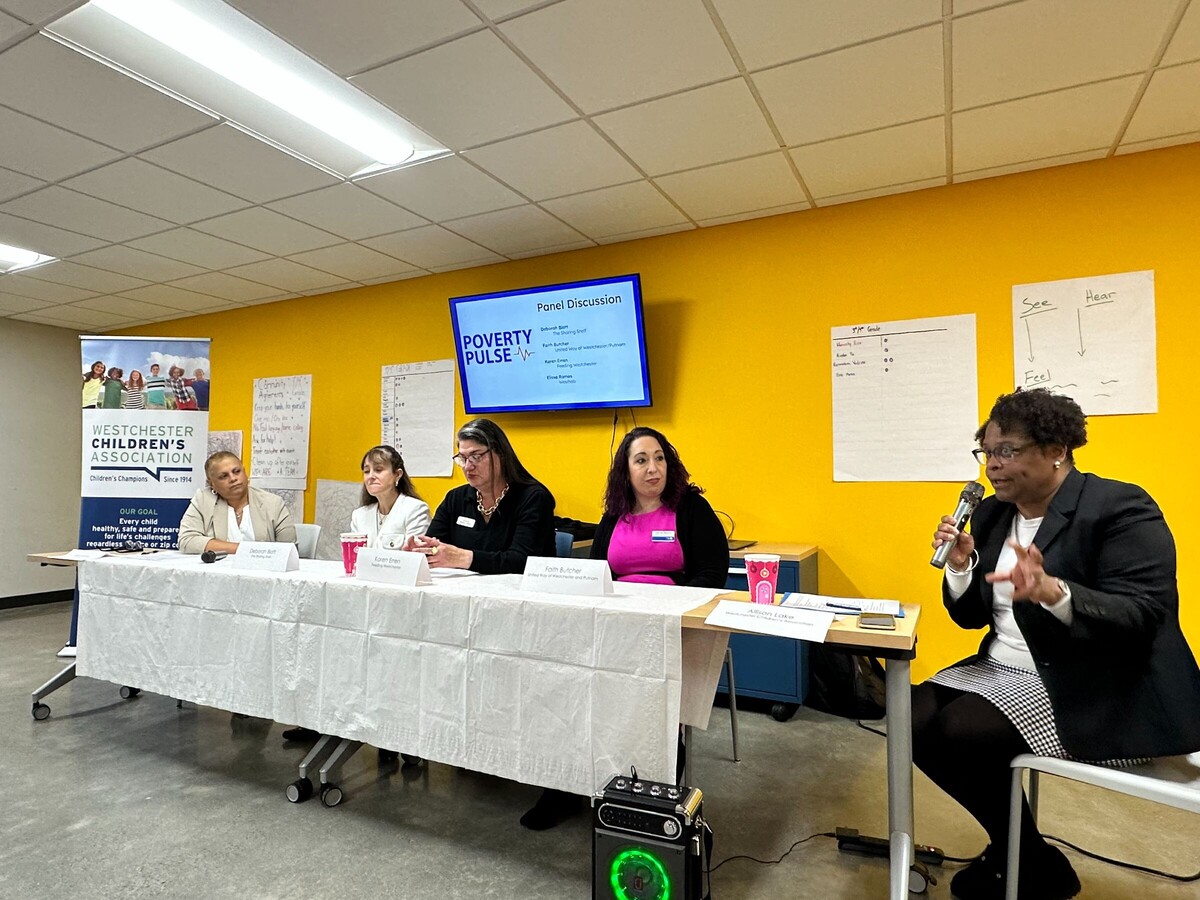Image


Westchester Children's Association (WCA), unveiled its groundbreaking "Poverty Pulse" Fact Sheet during a discussion at the Boys and Girls Club of New Rochelle, located in one of the nation’s most economically vulnerable communities and in Westchester County. This initiative collects real-time data from service-based organizations to provide an updated understanding of how children and families are faring in Westchester County’s economic climate.
Moderated by Allison Lake, Executive Director of WCA, the panel featured local leaders who shared valuable insights into the challenges faced by Westchester’s most vulnerable families. Panelists included Elissa Ramos from Westhab, Deborah Blatt from The Sharing Shelf, Karen Erren from Feeding Westchester, and Faith Butcher from the United Way of Westchester & Putnam. Together, they discussed the interconnected struggles facing families across the region.
WCA’s Director of Data, Limarie Cabrera highlighted findings from the Poverty Pulse Fact Sheet, showing a significant rise in food insecurity and increased demand for housing assistance. Many families in Westchester continue to grapple with basic needs, from securing stable housing to having enough clothing to wear. Panelists noted that families earning $30,000 to $40,000 are working hard but still unable to make ends meet. Karen Erren emphasized the growing reliance on local food pantries and community kitchens, while Deborah Blatt stressed the impact of clothing insecurity on children’s school attendance and self-esteem.
Housing instability was another pressing concern. Elissa Ramos noted that affordable housing remains a major challenge for families striving to provide stability. Faith Butcher of United Way stressed the importance of collaboration, particularly through the 2-1-1 helpline, which connects families to critical resources. “Many callers are working but can’t meet their basic needs. We’re here to bridge that gap,” she said.
“Our Poverty Pulse initiative offers a real-time snapshot of the daily struggles children and families face,” said Allison Lake. “The data empowers us to advocate for policies and programs that create lasting change. It’s not just about statistics; it’s about ensuring every child in Westchester has the opportunity to thrive.”
The event concluded with a call to action, urging policymakers, community organizations, and residents to unite in addressing the systemic barriers that keep families in poverty. By combining data-driven insights with community collaboration, WCA seeks to inspire meaningful change for the region’s most vulnerable populations.
About Westchester Children's Association: Westchester Children's Association is a non-profit organization dedicated to improving the lives of Westchester's young people by shaping policies and programs to meet their needs, and by keeping the county’s decision-makers and the public informed about the issues affecting youth.